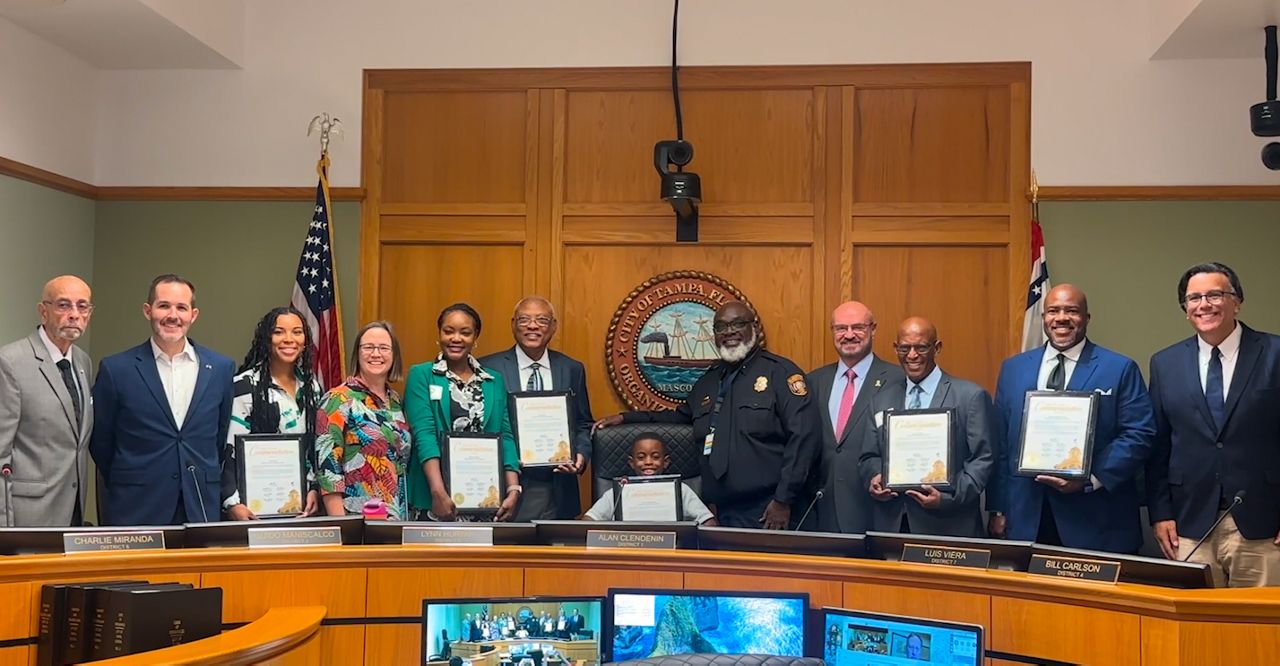TAMPA, Fla. — The City of Tampa honored its Racial Reconciliation Committee Thursday night with an official commendation — even as the group prepares to dissolve following a recommendation from the city attorney.
During a city council meeting, members were recognized for more than two years of work focused on addressing racial inequities and strengthening relationships between the city and its residents.
What You Need To Know
The City of Tampa honored its Racial Reconciliation Committee Thursday night with an official commendation — even as the group prepares to dissolve following a recommendation from the city attorney
In a memo, the attorney cited executive orders issued under former President Donald Trump that restrict federal support for programs that could be viewed as discriminatory on the basis of race or gender
While the city has closed one chapter on reconciliation, those who served on the committee say their work toward a more inclusive Tampa is far from finished
Without the constraints of a formal city committee, members say they can now meet freely and continue the conversation on their own terms
The city attorney recently advised the council to dissolve the committee, warning that its continued operation could risk federal funding.
In a memo, the attorney cited executive orders issued under former President Donald Trump that restrict federal support for programs that could be viewed as discriminatory on the basis of race or gender. The City Council accepted the legal advice, formally ending the committee’s tenure.
Despite the decision, several members say the mission won’t end with the committee’s dissolution. They plan to continue meeting as private citizens to carry forward their efforts toward unity, equity, and reconciliation.
“No, it doesn’t stop it for us,” said committee member Jarvis El Amin. “We continue to work. We get together. We work on issues. We put forward a partial report. It’s not a final report, but it’s a document that’s a starting point for us to build upon.”
Formed after the 2020 racial justice protests, the Racial Reconciliation Committee was tasked with recommending policy changes in economic opportunity, education, affordable housing, and community policing.
Its final report — though incomplete — outlines steps members hope the city will still consider in future planning and policymaking.
Without the constraints of a formal city committee, members say they can now meet freely and continue the conversation on their own terms.
While the city has closed one chapter on reconciliation, those who served on the committee say their work toward a more inclusive Tampa is far from finished.

